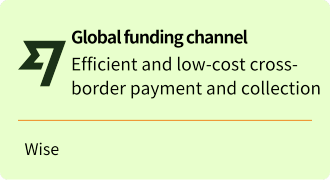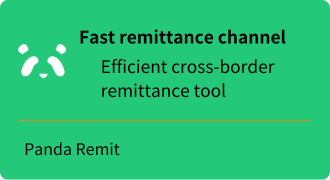U.S. Stock Tax Tips for Overseas Investors
[DISCLAIMER] This article is for educational and informational purposes only and does not constitute investment advice. Readers should consult with qualified financial professionals before making any investment decisions.
“Dividend arrived!” I excitedly opened the brokerage app, only to find that the actual amount was a whole lot less than expected. This scenario may be experienced by many investors who are new to U.S. stocks. It turns out that this is the famous “withholding tax” at work.
Fellow investors, if you are also confused about the “shrinkage” of dividend income, or are planning to invest in U.S. stocks, this article will be a must-read guide for you. Let's unravel the veil of U.S. withholding tax and discover how to maximize your return on investment within the legal framework.
Ⅰ. What is withholding tax?
Withholding tax is a tax imposed by the U.S. government on the income of non-U.S. resident investors, which is deducted in advance by the payer before it is paid to the investor. It applies primarily to dividends and certain interest income.
Ⅱ. What is the withholding tax rate?
The standard rate is 30%, but investors in many countries are eligible for favorable rates under tax treaties. For example:
- Mainland Chinese investors are usually eligible for a preferential tax rate of 10%.
- Hong Kong and Macau investors are usually subject to the standard tax rate of 30% because they do not have a tax treaty with the United States.
- Taiwanese investors are usually subject to a 15% tax rate under a special arrangement.
However, there are several important exceptions:
- Dividends from real estate investment trusts (REITs) usually maintain a 30% withholding tax rate.
- Distributions from regulated investment companies (RICs) that invest primarily in U.S. real estate may also be subject to a 30% withholding tax.
- Distributions from certain partnerships (including certain publicly traded partnerships, PTPs) may be treated as effectively connected income and may be subject to a withholding tax rate of up to 30%.
New rule: PTP withholding tax
Beginning January 1, 2023, non-U.S. individuals and entities will be subject to a 10% withholding tax on sales of PTP securities. This is a brand new rule that deserves special attention.
Ⅲ. What income is subject to withholding tax?
- Dividends: almost all ordinary dividends are subject to withholding tax.
- Partial interest: such as interest on certain bonds.
- REIT dividends
- Proceeds from the sale of a PTP (new rules)
Note that capital gains (i.e., gains on the difference between buying and selling stocks) are usually not subject to withholding tax.
Ⅳ. How can you reduce withholding tax?
4.1 Utilize tax treaties:
Ensure that Form W-8BEN is properly completed to take advantage of favorable tax rates.
4.2 Choose the right investment products:
Distributions from certain ETFs may be considered capital gains and thus exempt from withholding tax.
4.3 Consider investing in growth rather than high dividend stocks:
Returns from growth stocks come primarily from share price appreciation rather than dividends, which can reduce the impact of withholding tax.
4.4 Understand special circumstances:
When investing in REITs, RICs that invest primarily in U.S. real estate, or certain PTPs, be aware that favorable tax rates may not be available.
Ⅴ. Withholding Taxes vs. Home Country Taxes
In many countries, the withholding tax you pay in the U.S. can be credited on your home country return. This can help avoid double taxation. Specific rules vary from country to country, so it is advisable to consult a local tax professional.
Ⅵ. Common Misconceptions
- Mistakenly believing that all dividends are taxed at a reduced rate: In fact, certain special types of business dividends may still be subject to a 30% withholding tax.
- Ignoring the importance of Form W-8BEN: This form is the key to the favorable tax rate.
- Confusing withholding tax and capital gains tax: These are different concepts and understanding the difference is critical to developing an investment strategy.
Ⅶ. Special Circumstances: Hong Kong, Macau and Taiwan Investors
While these regions have significant differences when it comes to U.S. stock withholding tax:
- Hong Kong and Macau investors are typically subject to the standard 30% tax rate because they do not have a comprehensive DTA with the United States.
- Taiwanese investors are subject to a favorable tax rate of 15% under an agreement signed by the American Institute in Taiwan (AIT) and the Taiwan Economic and Cultural Representative Office (TECRO) in the United States.
- These differences may significantly affect investment strategies and returns, especially investment decisions in high dividend stocks.
Ⅷ. Conclusion:
Having knowledge of U.S. stock withholding taxes is like having an extra ace in the complicated game of investment chess. Not only will it help you more accurately assess your investment returns, but it will also guide you in making smarter investment decisions.
Remember, tax laws are complex and change frequently. While it is important to understand the rules, it is always wise to consult a professional tax advisor when making major investment decisions. Especially for investors from different regions, it is crucial to understand the specific tax policies in your region.
Investors, have you had similar experiences? Or do you still have any questions about U.S. stock withholding tax? Feel free to share your thoughts and questions in the group. Let's grow together and move forward hand in hand in this complex and wonderful investment world!
Investment is risky and you need to be careful when entering the market. May your journey in the U.S. stock market be smooth and rewarding!







